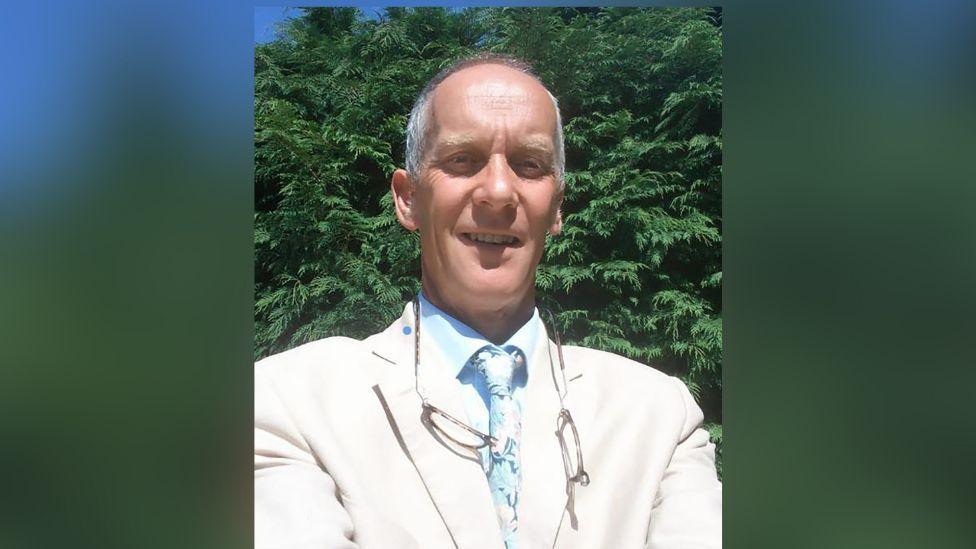Former Michael Watt patient to receive £50k in damages

Michael Watt worked at the Royal Victoria Hospital as a neurologist
- Published
A former patient of Belfast neurologist Michael Watt is to receive £50,000 in damages for her “appalling standard of care”, a High Court judge ruled on Wednesday.
The payment was awarded to Martine Norney to cover psychiatric and medical injuries during the consultation and treatment by the former doctor.
He has since been banned from working as a doctor in the UK.
The Belfast Health and Social Care Trust was held jointly liable in her negligence claim over a procedure carried out for a neurological condition.
With both defendants ordered to pay half the damages each, Mr Justice Colon described the conduct of Mr Watt as "appalling", adding that "this would be clear to any lay person".
Who is Michael Watt?
The medic, who worked at the Royal Victoria Hospital (RVH) in Belfast, was at the centre of Northern Ireland’s biggest-ever patient recall in 2018.
Thousands of people were re-examined amid concerns about the treatment they received from him.
He was struck off the medical register last year after his professional performance was found to be unacceptably low.
Ms Norney sued both the neurologist and the Trust for alleged grossly substandard medical care, which she said was done in a cubicle with both parties in outdoor clothes, and caused her excruciating pain. She alleges she was not offered any review appointment or information about follow-up care.
Ms Norney began to experience headaches, dizziness and nausea along with pins and needles in her right arm and sensitivity to light and sound.
The court heard she was initially referred to the neurology clinic at the RVH before seeking a private consultation with Mr Watt in July 2016.
He told her she had a spinal leak and that he would arrange an epidural blood patch to be carried out under the NHS rather than privately.
The procedure involves taking blood from her arm and injecting it into the back, to help close the hole from anaesthesia and hopefully cure her headaches
Ms Norney was also informed that she had a condition called Spontaneous Intracranial Hypotension (SIH) which required a fluid injection into her back to cure it.
Negligence was established against the struck-off doctor over his consultation with Ms Norney and diagnosis that she was suffering from SIH.
She claimed there was no discussion about the risks associated with the procedure or any alternative diagnosis.
'Excruciating'
In November 2016, Ms Norney attended hospital to have the blood patch performed by the neurologist.
Mr Watt came into the cubicle in his everyday clothes, unmasked and not wearing gloves, according to her account.
She also remained in normal clothing when told to lie face down on the bed so he could carry out the injection.
At one point she felt severe pain in her right leg and asked him to stop, but he continued and said “just a bit more.”
She described the pain as excruciating and that it felt like her leg was going to burst.
Ms Norney was left lying for ten minutes before leaving, during which time Ms Norney claimed Mr Watt and an accompanying nurse had already gone.
'Appalling standard of care'
Mr Justice Colton described the neurologist’s written records of what took place as “woefully inadequate and substandard”.
Dealing with the procedure carried out in November 2016, a litany of unacceptable behaviour highlighted by a consultant anaesthetist witness included:
failures to obtain informed consent
inappropriate clothing for both patient and doctor
no gloves or scrubs
persisting beyond Ms Norney’s complaints of pain and discomfort
substandard post-procedure management of a patient who should have stayed lying down for at least two hours
In his assessment of how the blood patch procedure was performed, the judge said there seemed little dispute that the plaintiff received an “appalling standard of care”.
- Published3 July 2024

- Published6 November 2023

- Published28 November 2023
